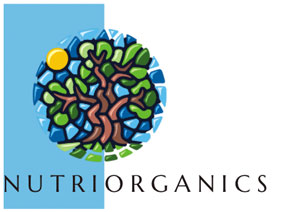Our body makeup
Our bodies are made up of a number of elements, some of which are gases (like hydrogen and oxygen), and others that are liquids or solids (like iron, zinc and chromium).
The vast majority of the body (96%) is made up of carbon, oxygen, hydrogen and nitrogen. From these key elements, vitamins and macro-nutrients (proteins, carbohydrates and fats) are formed. The remaining 4% of the body is made from minerals.
Why we need minerals
Although they comprise a relatively small part of the body, minerals are nonetheless vitally important for our health and well-being. Generally speaking, they are used to regulate and balance our body chemistry, with a few key exceptions:
- calcium, phosphorus and magnesium, which are the major constituents of bone
- and sodium and potassium, which control water balance in the body.
These five particular minerals are referred to as "macro-minerals", because we need to consume relatively large amounts of them each day in order to meet the requirements of our body. The remaining elements are referred to as "trace minerals", because they are required in much lower levels, but are still no less important.
Are you getting enough minerals?
Minerals work in a very similar way to vitamins, in that they are extracted from the soil by plants and can then be directly accessed by eating those plants. Alternatively, they can be indirectly accessed by eating meat. Just like vitamins, minerals are also often deficient in the average modern diet for a number of reasons, including:-
Soil quality and farming methods
Almost all the elements present in soil can enter the plant. However, modern farming practices, and overfarming, often lead to the depletion of minerals in soil over time.
The only way to avoid this is for the farmer to manually replace the lost minerals through the use of mineral-rich manure. Unfortunately, many of the minerals that we would wish to see present in our foods are not required for plants to grow and so there is very little incentive for the farmer to spend money on replenishing them.
Unsurprisingly, the minerals that tend to be added back are those that are essential for plant growth and help them to grow faster - namely, potassium, nitrogen and phosphate. Rather than supporting our mineral intake, phosphate actually binds to trace minerals (like zinc) and makes them harder for the plant to absorb.
Research that compared mineral levels in plants in 1939, against those in 1991, indicated a drop as high as 22%. In reality, the decrease may be even higher, given that analytical methods have improved significantly over this period.
Food processing and refining
Food manufacturing processes are actually the greatest cause of mineral loss in food - even more so than modern farming practices and cooking. A prime example is the refining of food staples such as white rice, white flour and white sugar - processes which remove up to 90% of their trace minerals.
Ironically, because there are certain legal requirements relating to nutrient levels in refined foods, vitamins and minerals often have to be added back in - something which wouldn't be necessary if the foods weren't refined in the first place! This is why it is now quite common to see products displaying the words "with added vitamins and minerals" or "enriched".
We need more minerals
Research over the past two decades has shown that our exposure to toxins and "anti-nutrients" has risen significantly, as a symptom of modern living (i.e. chemicals in our food and water, pollutants in the environment etc). In particular, the level of lead, cadmium, aluminium and mercury (toxic minerals that compete with essential minerals) in our bodies is increasing. What's more, as we age, these toxic elements accumulate - hence the importance of regular cleanse and detox regimes.
This means we need higher levels of "good" minerals than ever before, to help protect us against the unavoidable toxic elements that enter our bodies - and diet is key.
The fact that so many people choose to eat refined foods (such as bread, pasta, cereals, ready-meals etc), and avoid mineral-rich foods (such as leafy greens, fruit and vegetables, whole grains, nuts and seeds), means that many are mineral-deficient.
This highlights the importance of a balanced, seasonal and preferably organic diet. To be sure of high-quality mineral intake on a daily basis, you can also top-up with nutrient-dense food supplements.

